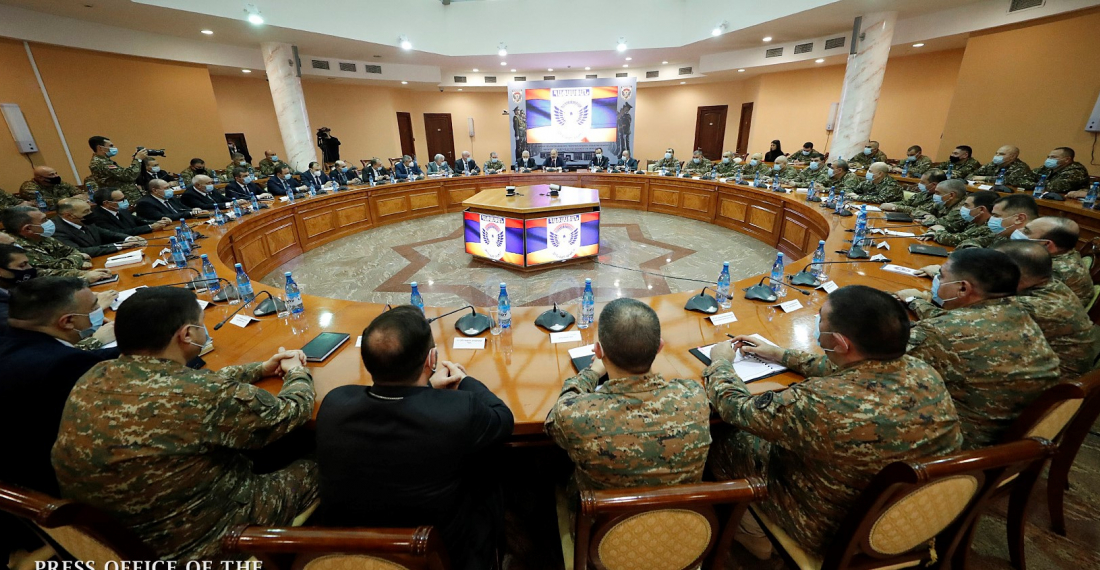Armenian prime minister Nikol Pashinyan on Thursday (29 January) visited the command of the Armenian armed forces on the occasion of the 29th anniversary of the establishment of the Armenian army, which is marked as Armed Forces Day. This was the first public meeting between Pashinyan and the military command since the end of the 44 day war with Azerbaijan which Armenia is considered to have lost decisively.
“The Armenian Army, Armenia and Artsakh and the Armenian people are going through a difficult trial related to the 44-day war,” the Prime Minister said in his remarks. “In this environment of bitterness we should not forget the heroism that numerous soldiers, officers, generals and volunteers did for their homeland. Today we must worthily appreciate the sacrifices made by our soldiers, officers, generals and volunteers during this war, and we must be able to look into the future. We must be able to look into the future optimistically. We must be able to ask ourselves what it is that we didn’t do right during this period so that our army’s resilience was higher. These questions must be faced,” Pashinyan said. He said the military is already looking into the matter to provide answers.
Pashinyan said that the security continues to be the absolute priority – just like in the past – and the number one tool of ensuring this security were the Armenian Armed Forces. But he reminded his audience that the army was not an isolated island, and depended on the wider economic, political and social processes going on in the rest of the country.
The Armenian prime minister said that the modern world doesn’t have a structure where countries have the chance to ensure their security individually. Even the most powerful countries are seeking alliances, forming alliances and are placing their security on the basis of mutual assistance. In this regard Armenia is no exception.
"We must continue developing our allied relations with our main security partner Russia. We must continue developing it as part of the CSTO, and we must ensure the security of our country and people also through international mechanisms. However, I also would like to say that in the context of our country’s security what needs to be done is first and foremost up to us. We must do this work tirelessly, without faltering, without pessimism. We must be optimistic about building our future security environment."
Pashinyan has faced demands for his resignation following the autumn military defeat, and there were even calls for the army to take over, but the command of the Armenian armed forces insisted it was not going to get embroiled in politics and will support the constitutional order.







